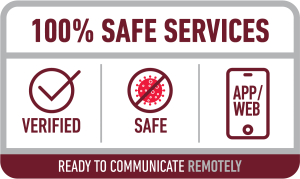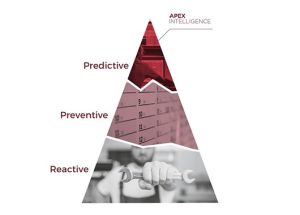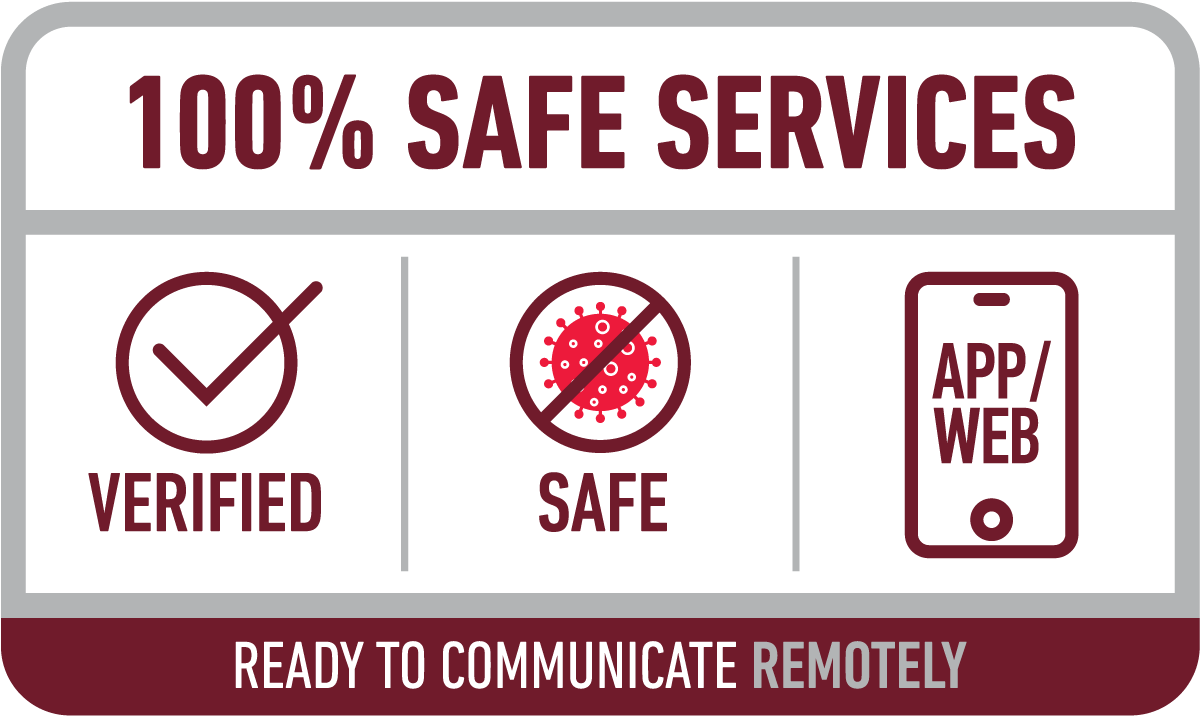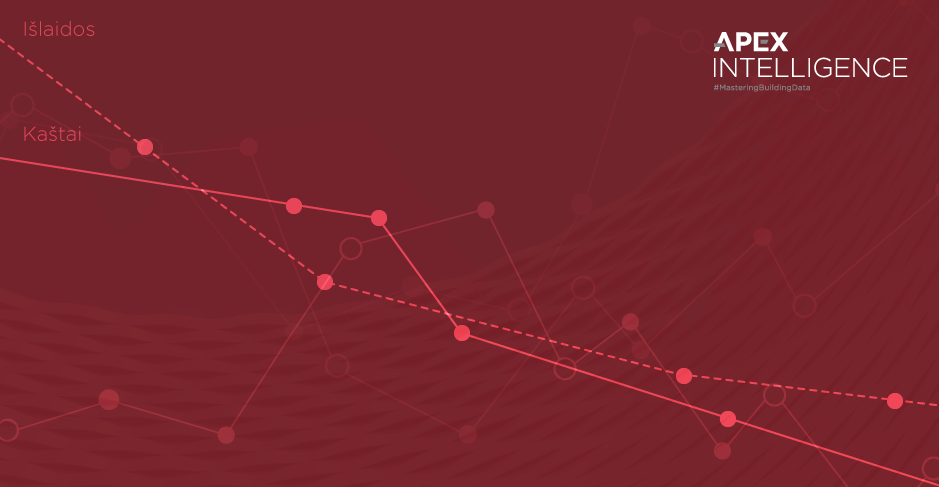Ready for the second Covid wave!
Dear customer,
The surprise wave of COVID-19 this year has become a major challenge for almost the entire business sector. The inconvenience caused by the pandemic not only demonstrated the resilience of businesses, but also the ability to respond to the situation in a flash, flexibly adapting to the crisis caused by the virus. It has become clear that in some industries, the traditional business model is not prepared for such challenges, and provision of physical services to customers is either insecure or impossible at all.
Even before COVID-19, "City Service Engineering" developed and implemented digitized systems that allow to provide the highest quality maintenance services all of its customers while minimizing physical contact. We have long believed that this is the future of sustainable business, although the pandemic has shown that that future has turned into the present very rapidly. We are pleased to be the first on the market to be able to handle many building maintenances issues safely and sustainably in a remote way. Today we can firmly guarantee that we are 100% ready for that.
For more than 20 years, "City Service Engineering" has always strived to be one step ahead in the building maintenance market. We have no doubt that only with the solutions, innovations created and implemented by us and our ability to quickly react to changes have we earned the trust of our customers. Every year, we sign over 100 building management contracts with both large and smaller companies. Today we provide services to more than 9000 clients throughout Lithuania.
We are responsible for the maintenance of your property; therefore, we would like to emphasize once again that we are able to carry out the organization of building management without direct physical contact at the customer's site. For convenient and secure communication, we have created a new generation communication tool named "eCSE" - a self-service platform and mobile application for all users of the object. Many of our customers are already convinced that with this tool it is possible to solve problems faster, more conveniently and, most importantly, more safely, as physical contact is eliminated.
We have been providing services to you for some time in accordance with the new business logic. If we used to work according to the "Customer-Employee" principle, then from now on we provide services in a different way - as in "Customer-Perfectly functioning system". As a result, the speed of the service changes, as the system allows to significantly speed up the resolution of customer problems. In other words, all requests are currently visible in the system, so they are processed much faster, and the customer is given real-time feedback when the status is changed.
We use digital products, and this ensures the provision of fast and high-quality services to you. In addition, thanks to digital technology, we can use the most suitable external partners and all this so that the assets you manage are only our concern.
We recently introduced another innovation - "Apex Intelligence". This is a new model of building maintenance, which makes building maintenance significantly more efficient, requires less inefficient actions, ensures continuous maintenance of systems, reduces the risk of equipment downtime, increases work efficiency, and saves energy costs. Building systems are constantly monitored remotely, data flows are analyzed, and thanks to appropriate algorithms, the system automatically informs about equipment failures and anticipates possible failures and losses.
We strive to provide services perfectly, but sometimes we also make mistakes, but we are never afraid to acknowledge this and take responsibility. Despite the occasional problems, almost 350 "City Service Engineering" employees constantly take care of the smooth management of your building every day.

The dilemma: whether or not is it possible to reduce both costs and risks?
The dilemma: whether or not is it possible to reduce both costs and risks? What the world will choose in 2020-2026?
Wrong system maintenance strategy may in principle determine overall productivity of the organization. No matter whether it is a manufacturing company, a real estate developer or a shopping centre. Everyone has the same dilemma to solve: how to maintain a balance between costs/expenses that are allocated to system maintenance and risk of failure, production downtime, inappropriate comfort, complaints or waste of energy resources. All this can be called the impact of system/building maintenance service. Maintenance service itself determines up to 30% of the overall productivity of the building or maintenance process.
New cost-reducing maintenance model
Maintenance and service models
The market for the predictive maintenance model is expanding globally at an annual rate of 25.2% from USD 4 billion in 2020 to a projected USD 12.3 billion in 2025. Such expansion is not accidental. Based on the global practice, the predictive maintenance model is up to 30% more efficient compared to other two system/building maintenance models - reactive and preventive. Let us examine the use, benefits and advantages of these 3 models.

III. Model – Predictive
Analytical data processing. Insights that can help predict equipment failures and verify service actions.
II. Model – Preventive
Scheduled performance of service works. Management/monitoring of engineering systems and data collection.
I. Model – Reactive
Accidents and repairs. Emergency response.
APEX Intelligence – APEX Intelligence - purposeful data traffic collection, analysis and management.
The use of equipment until the failure thereof is described as a reactive maintenance model. It is used for certain systems/equipment, the failure of which cannot lead to significant losses. For example, it is obvious that failure of one luminaire does not pose significant risks or potential loss. Usually, no special checks or inspections are required for luminaire to operate. In such cases, a reactive maintenance model is used.
However, there are systems whose malfunctioning may lead to significant losses or risks. For example, the operation of a fire alarm requires periodic inspections and tests. The scheduled preventive checks-inspections of systems are used for that purpose. The same is true for the lighting system. Imagine that if a lighting control time relay, which is responsible for switching off the light during non-working hours, does not work, failure of this system can already lead to up to 10% higher electricity consumption. Consequently, scheduled inspections for a part of this system may reduce waste of energy resources.
Up to 8 different systems or hundreds of different devices may simultaneously operate in the building. Therefore, an appropriate maintenance model needs to be adapted for each system not only for us to be able to ensure the requirements of Lithuanian legislation but also that we could make good use of the productivity of building systems by eliminating risks or losses of energy consumption. For example, heating, ventilation and air conditioning (HVAC) systems in the building account of up to 40% of energy costs. In addition, the operation of these systems ensures by 100% the comfort of people who are present in the building. Nevertheless, the reactive maintenance model or insufficient periodicity of scheduled inspections is incorrectly applied to the maintenance of these systems.
Naturally, an inspection of the HVAC system 365 times a year, when calculating wages, would cost a lot. Therefore, despite the importance of the proper system operation, the number of periodic inspections is reduced. Verification of the operation of these systems using digitization technologies is the only effective way to maintain a balance between the costs of maintenance and the impact of the service provided - comfort and optimal energy costs.
So, application of digitization for equipment maintenance is the essence of predictive maintenance which reduces the cost of maintenance itself and ensures efficient 24/7 operation of equipment.
What is the situation in Lithuania?
In Lithuania, up to 90% of organizations use reactive and preventive maintenance models in formulating a system maintenance strategy. Efforts are made to balance between minimum costs and requirements defined in the state acts. Lithuania, however, still lags behind the practice of other countries, where the third maintenance model - the model of predictive maintenance, that was mentioned above, is becoming particularly popular.
Sometimes we do not realize that the predictive maintenance model can already be used today in the majority of buildings without significant investment. Investment in building automation has been growing in the past 10 years. Therefore, the data collected about buildings can be easily used for more efficient system maintenance.
“APEX Intelligence”, an independent data analytics centre founded by “City Service Engineering”, ensures efficient collection and use of building data and the predictive performance of maintenance.
The professionals of "City Service Engineering“ can perform system digitization analysis in your building and provide suggestions on how to optimize building maintenance.



